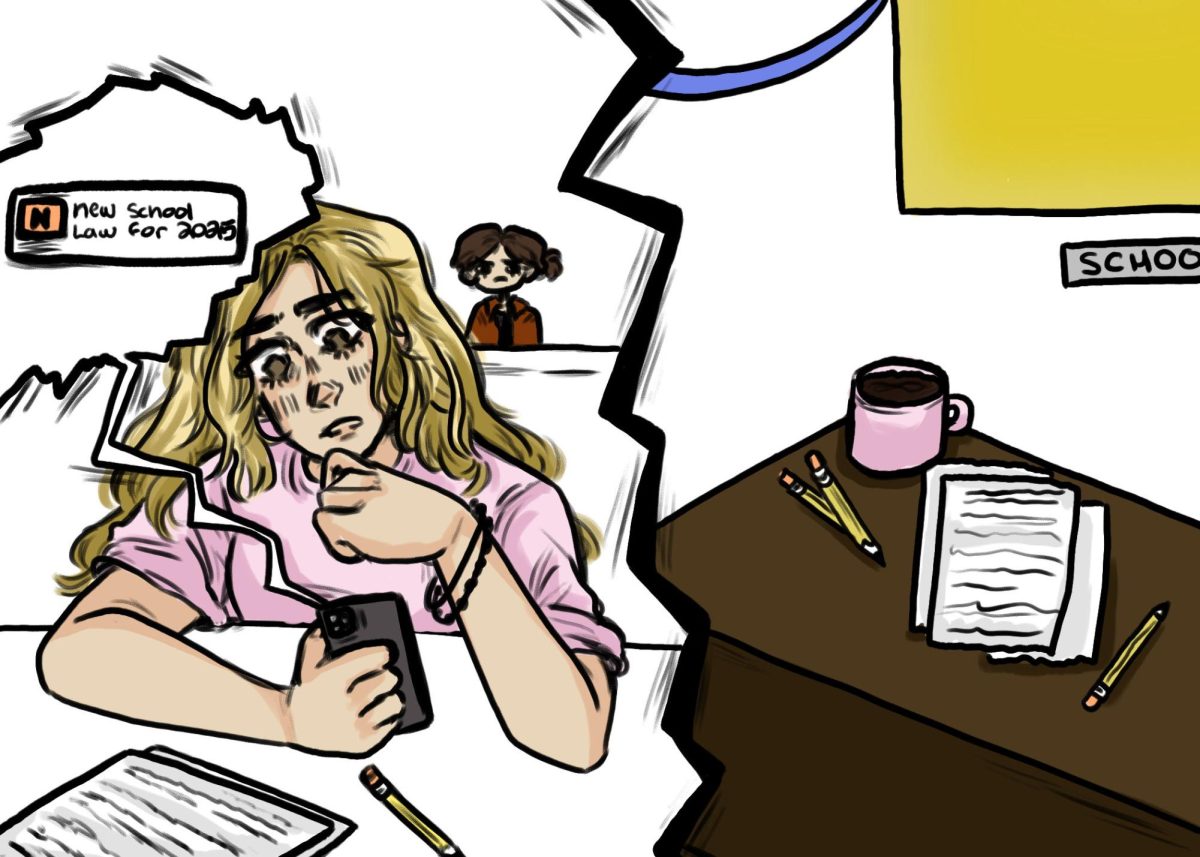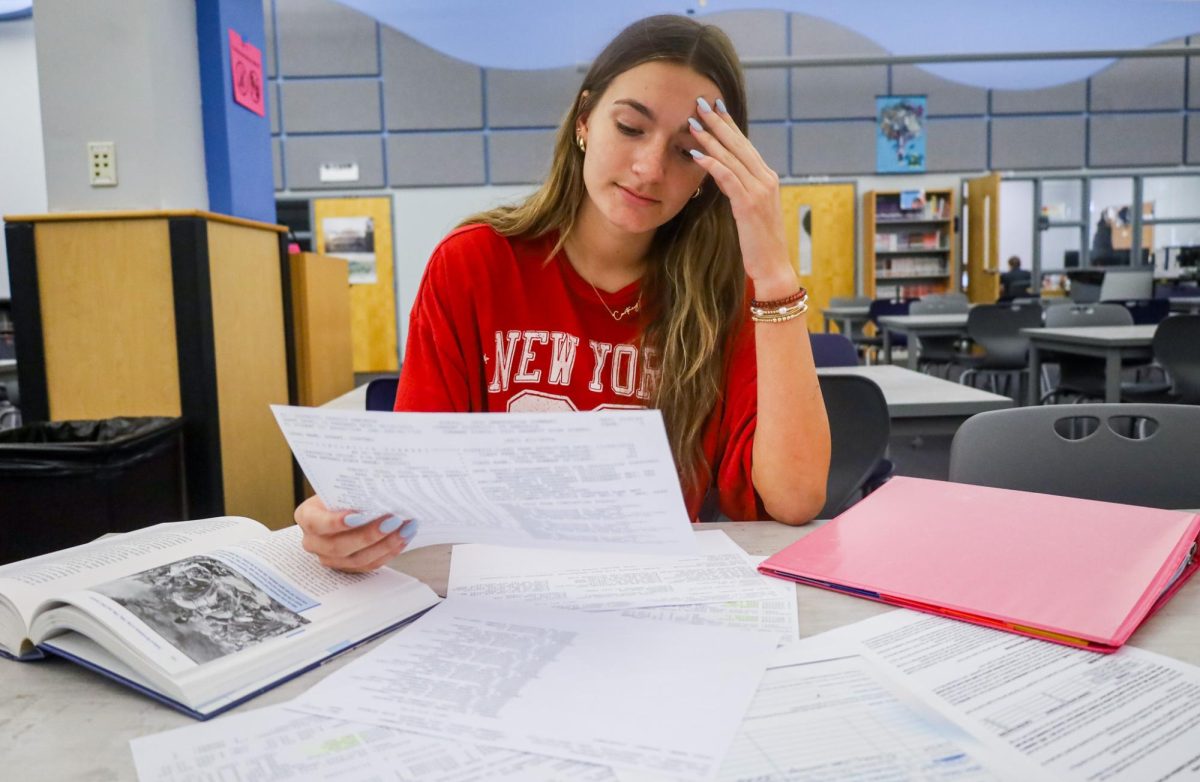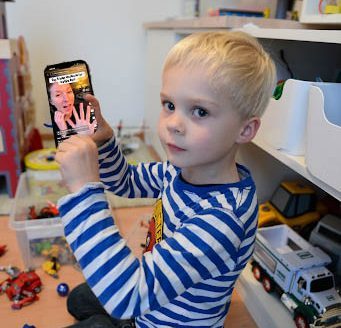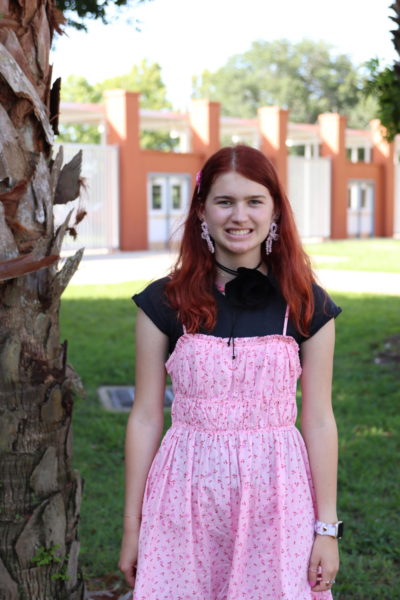Every day, students shuffle from class to class, from teacher to teacher without giving much thought to what it takes to keep the school running. There are many different teachers officers and officials working each day, and a cost of cost of one million dollars a day to make it happen. Facilitating this money and overall structure, is the school board.
The school board isn’t a group of evil overlords that control the lives of the students. They essentially makes and adjusts most of the rules, policies, and budget that directly impact their county. There are five districts each represented by a member, who serves a four-year term. Additionally, a large portion of their schedule consists of attending school sponsored activities.
“To be an effective school board member, I believe that you need to support students at their events and activities, so we go with the superintendent to visit every single school in the district to see all the good work that the students are doing,” school board Vice Chair Kristine Kraus said.
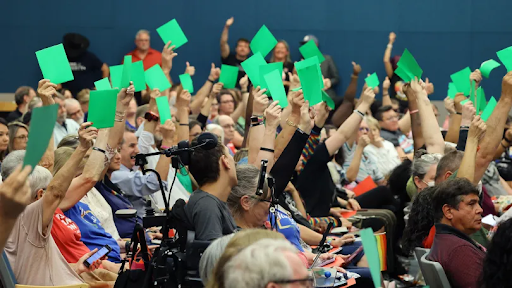
Each of the five members of the board have all been actively engaged in the community for years before running for board. Kraus in particular was inspired to get involved after surviving a school shooting in in Des Moines, Iowa, when she was 15.
“No one was seriously hurt, but my chair had bullet holes in it,” said Kraus.
This incident inspired her to take action to prevent anything like this happening again.
“I initially ran [for the board] because Governor Scott wanted to give teachers opportunities to carry weapons and protect their schools. I was adamantly against that and the seat was vacant. Of course safety was the number one issue for my campaign.”
When listing duties associated with the school board, attending disciplinary hearings is not usually one of the first responsibilities that comes to mind. Yet, it is one of the most important things they do, especially in regards to the futures of individual students.
“That’s the hardest part of the job. You’re holding that student’s fate in your hands because with an expulsion on [a student’s] record, it’s definitely harder to graduate high school, which is our ultimate goal. So I take [the hearing] very much to heart and I understand the weight of the decision that gets made,” Kraus said.
A big part of the policy making process revolves around hearing public opinion and adhering to complaints. A good example of this is the case regarding the Lyman yearbook last year. The school board had to legally consider reprinting the yearbook entirely potentially costing the school thousands of dollars, all due to four parent complaints regarding an LGBTQ+ spread, according to a spokesperson for Seminole County schools.
The rules and policies staff and students have to adhere to is determined by laws made by the legislature. Any time a new law gets made about education, the school board goes through all of their policies to ensure they follow said law. They also change policies or make decisions based on public need, as with Lyman case. The creation or change of a policy happens over the course of school board meetings where anyone who attends can get a chance to speak on the issue at hand before the board votes on a decision.
“There are many times when I disagree with the decision, but you have to respect the process and where it goes. For example, I wanted our district to recognize Pride Month on the [Seminole County social media accounts],” Kraus said. “But I read the room and based on their comments they were not going to support that. Even though in my heart of hearts, I know that it would have made a difference for many of our students and staff, I pulled the motion knowing that it was going to fail.”
The Disconnect
All of the laws and policy makings are for the supposed benefit of students and staff within Seminole County, yet public opinion of the school board never seems to be that high.
“I think that the school board consists of a bunch of people who are trying to do their jobs, but personally are only out for their own interests. A lot of the policies are harming students more than helping them,” sophomore Finn Mielke said.
However, school board members would argue the exact opposite is true.
“We are here for the kids, not for some political gain. So if you take anything away, I hope you know that,” said Kruas.
The reason for this disconnect is simply that student and teacher voices are not being heard or represented in the decisions and laws that affect them. Every non-board member interviewed listed some issue they had with not having their real needs met, most even going as far as to say the decisions made had a net negative impact on their day-to-day life.
“I think this district has become very micromanaging and controlling of teachers. And I think that’s indicative of the administration up on the fourth floor at the district office. Unfortunately, there are a lot of people in positions where they are focused more on their, for lack of a better word, power than doing what’s right, for students and teachers,” film teacher Lisa Gendreau said.
The negative opinion doesn’t stop at restrictions; many students felt betrayed by certain decisions.
“I do think that they are doing a good job as far as security and gun safety is concerned. But there could be better measures taken for the students in general, and allowing students to feel safe in their own skin,” senior Zarah Ateeq said. “There should be more policies implemented for LGBTQ+ people. I feel like they have let us down in that sense, where they’re not necessarily like providing that safe space.”
It seems the circle of selected officials doesn’t quite intersect with the circle of teachers and students it represents. While it is common for board members to take pride in going to schools and attending events, there seems to be a large disconnect between the general population of highschoolers and teachers and the many policies that deeply affect them.
“Even people at an administrative level at the district office have been removed from it for a long time and they have a tendency to forget what it’s like inside of a classroom. There are people at the district office who’ve never even taught,” Gendreau said.
While many students and staff do recognize the effort it takes to manage Seminole County, the general consensus is that they can do much better.
“I do admire that they’re trying but I feel like a lot of the policies are coming from a parent perspective. They should be looking at it more from a student perspective, since these are the people who are the people who are going to be directly impacted,” Ateeq said.
The school board rarely gets any student responses, emails of board meeting attendance. Both members listed the request for an interview for this very article to be one of the only cases of a student reaching out in a while.
“I very rarely hear from students. I would say, maybe once a month. When students come to the board meetings and speak I try to reach out afterwards to make sure that they know they’ve been heard. I mostly just hear from parents and community members,” school board member Autumn Garick said.
The issue itself isn’t just with the members of the school board, it’s with the lack of the right people reaching out. In order for students and teachers want to be represented properly,school board members say the need to hear from them. At least, that would be a start.
“My suggestion for students to email all of us to call all of us to just keep it on the forefront to kind of let us know what they’re seeing, what they’re hearing, and what how this has impacted them.They’re always welcome to come to a school board meeting,” Kraus said. “We do read and respond to our emails if they’re not comfortable speaking at a board meeting.”
The numbers of each school board member are publicly available on the Seminole County website, and can be found in the sidebar of this article.
“Individually, we can meet with students and talk and listen. I am open to coming to any club for a class. I’m happy to, I’d even meet up at Starbucks over the summer, or at Barnes and Noble. As individuals, we can have private conversations anytime,” Garick said.


